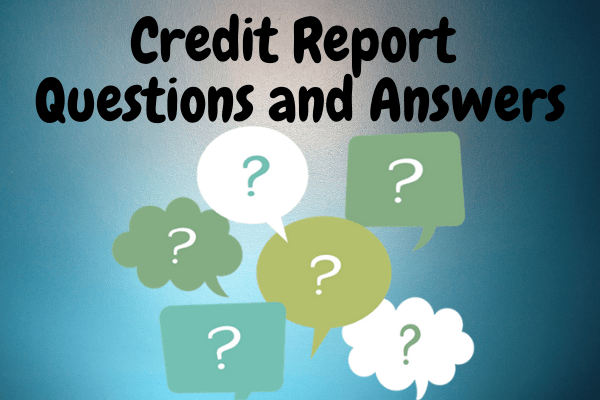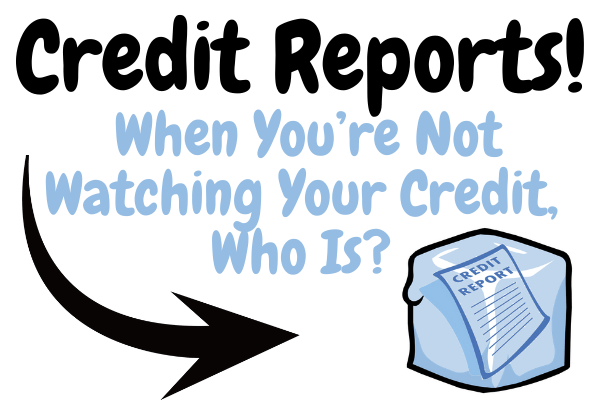Credit Reports! When You’re Not Watching Your Credit, Who Is?

Credit Score is Important When Buying a Car
May 17, 2017
Credit Report Questions and Answers
May 17, 2017Credit Reports! When You’re Not Watching Your Credit, Who Is?
Requesting your credit report:
Requesting your credit report does one of two things; first it keeps you on top of what’s being reported about you and your financial habits. If you have missed previous monthly payments, have creditors and financial lenders hounding you for their funds, or you have the annoying collectors calling you everyday, then the odds are you will have all this reported at specific bureaus, such as Equifax and Transunion, to name a few.
The second reason for requesting your credit report to check your personal report at these select bureau companies is that there is an increase in credit and identity fraud, and even though you have gone through most of your life with no problems, it only takes one occurrence where a credit thief steals your identity and/or credit information, and you then have to spend many months of painful damage control in trying to re-establish your credit rating and identity.
When I acquired my first credit score, I was amazed on how much detail was on that report. The day you sign-up for your first credit card, or sign for your first loan, your credit history is recorded on virtually every action you take. Again, many of you may already know this, but for the individuals that are new to this information, this is the time to research further, and really understand how credit bureaus create reporting information and your identity reports.
When Is The Right Time To Obtain These Reports From The Variety Of Bureaus!
Depending on whom you talk to, whether it’s your bank or any other financial institution you’re currently dealing with, most may say that you should check your personal history periodically and in some cases once a year. Even if you make your monthly payments on time, or pay off your debt in full, you would be surprised at how many times there can be a mistake or error placed on your report, and you wouldn’t even know it until you go to qualify for a personal loan, or possibly your first mortgage.
Imagine when you decide to visit your bank as a first-time homeowner, you’re ready to sit down and negotiate a really good interest rate, and your mortgage agent turns to you and says that there are credit issues on your bureau report. Not only would this be a shock to you, but also it would probably make you feel really embarrassed finding this out through your financial institution.
You can avoid that embarrassment as you check bureaus regularly and have them provide you a written personal report on you to check for any inaccuracies. If you know that you have a less than accurate history, then these credit reports will give you a guideline where you can start to repair the damage that’s already done, and this way you can give your bank the head’s up and give yourself better negotiation leverage.
Now if you’re thinking that you don’t need to check for errors or discrepancies, because you don’t ever plan on getting a loan or mortgage in the future, then you should consider the other side of contacting Equifax and Transunion to obtain information to make sure you’re protected from credit theft.
This would apply to everyone, however, for individuals that do purchases in a variety of avenues including over the Internet, I would recommend that you verify and check frequently to make sure no one has obtained your identity. I know you may say that this could never happen to you, but if it did, wouldn’t you feel better that you caught it quickly to avoid major damage to your reputation and good credit that took you so many years to establish. In a matter of days, you can have your excellent rating damaged due to some thief that is currently using your identity!
I Would Like To Get My Hands On My Report History, How Can I Do This?
If you’re currently searching ways to obtain your report’s score, you can easily get a free credit bureau copy by either contacting the online bureaus, or checking locally to see if you have agencies that will do this service for free.
You should not have to pay money for your reports, and when you contact the bureaus directly, they will instruct you on what information is required to have your free reports sent to you in the mail. However, there are services online and in your local area that provide reporting and identity protection services, but I will go into more detail on those types of services in another article. In conclusion, if you’re so new at obtaining this necessary information, or you just don’t have the time, a paid service may be an option for you to consider, and we can touch on these topics another time.




